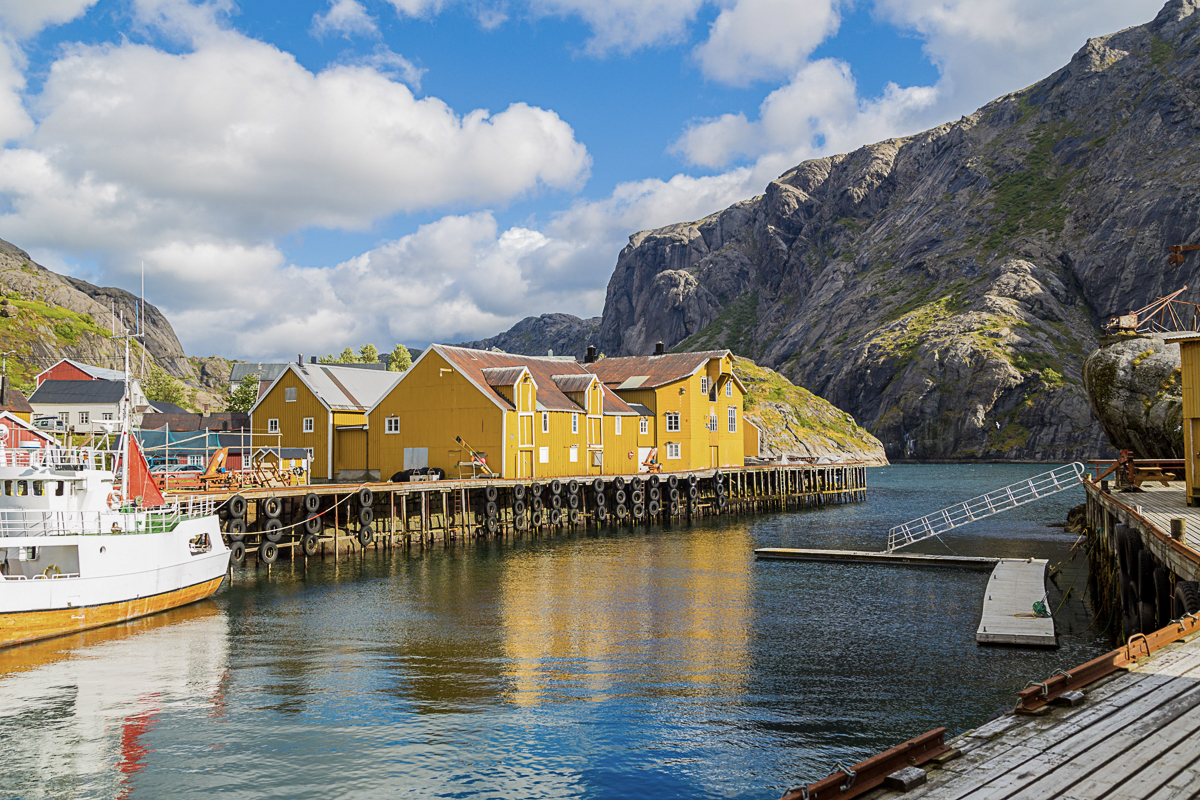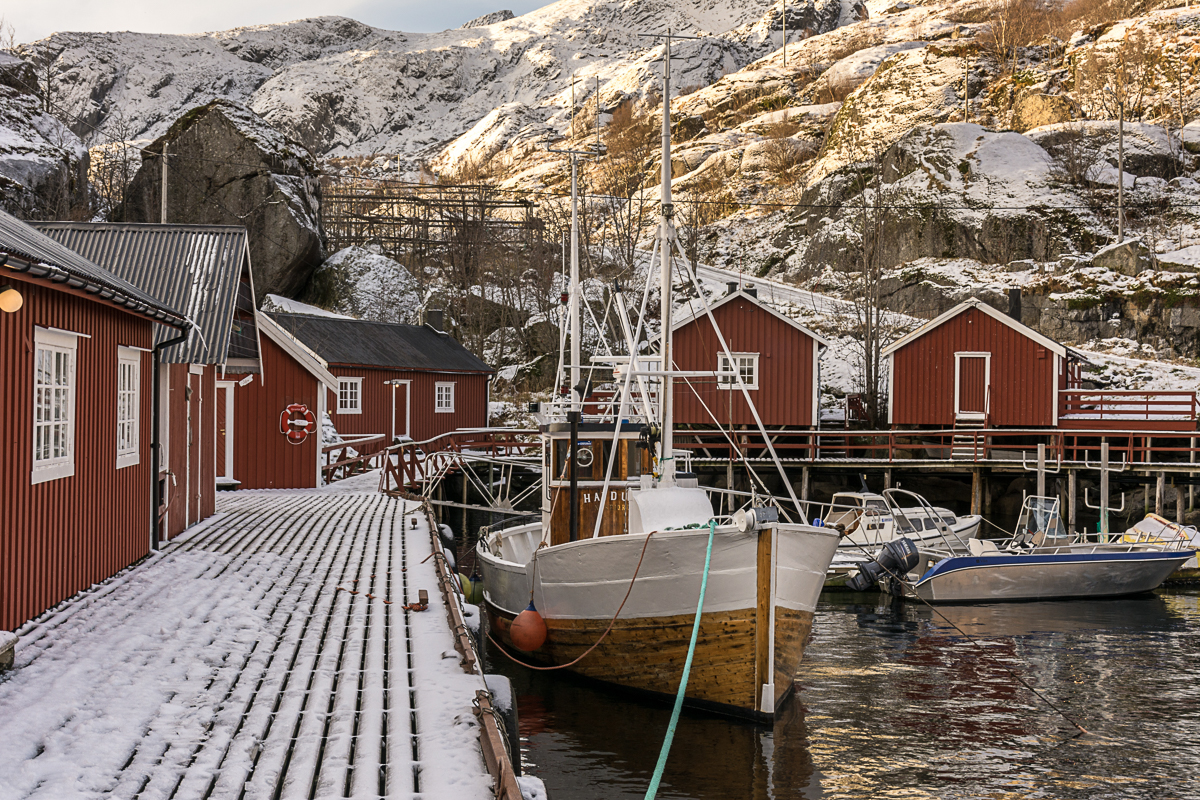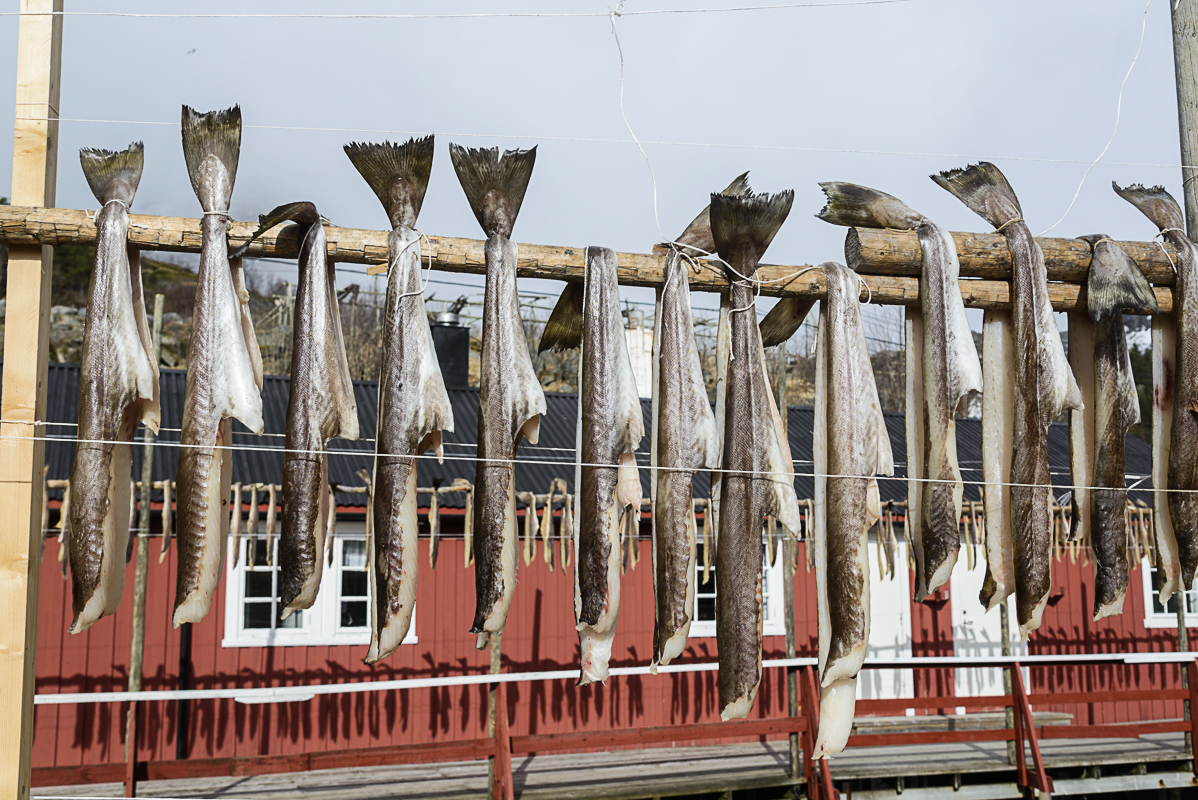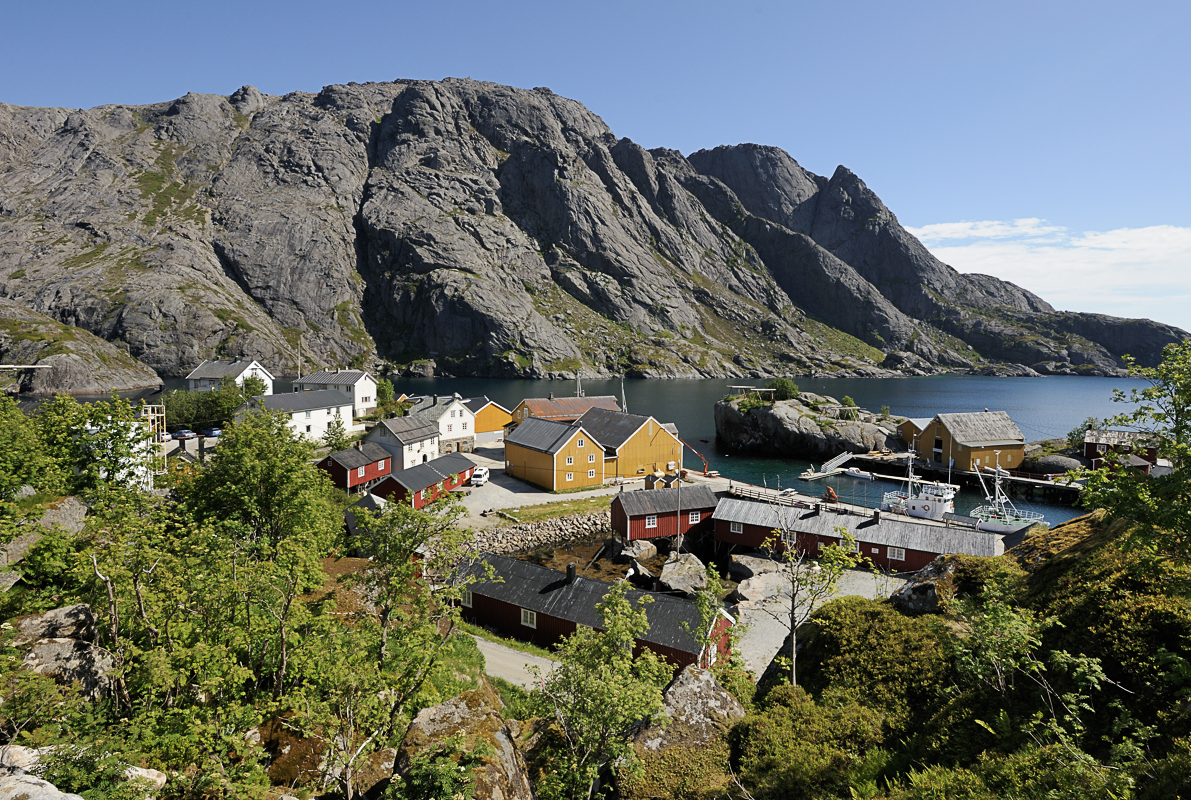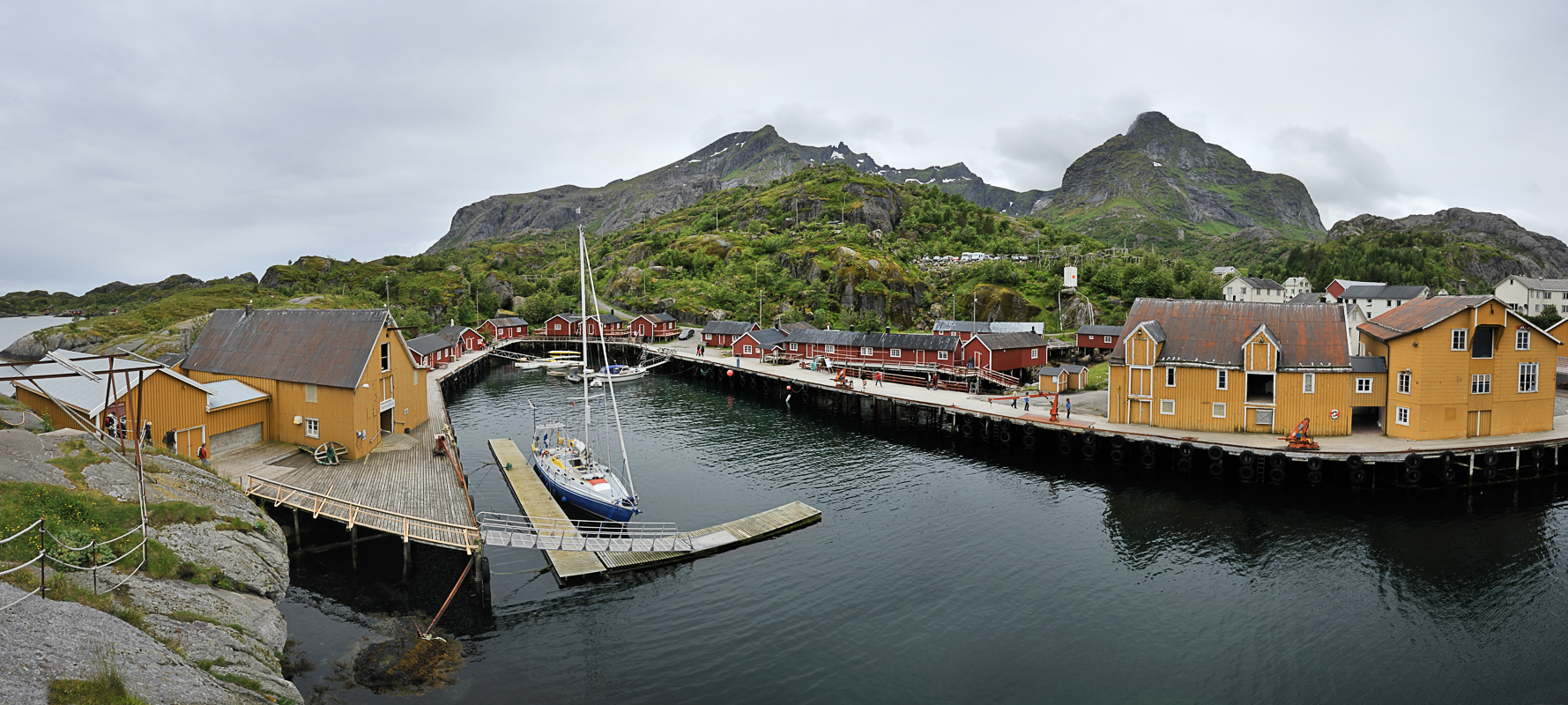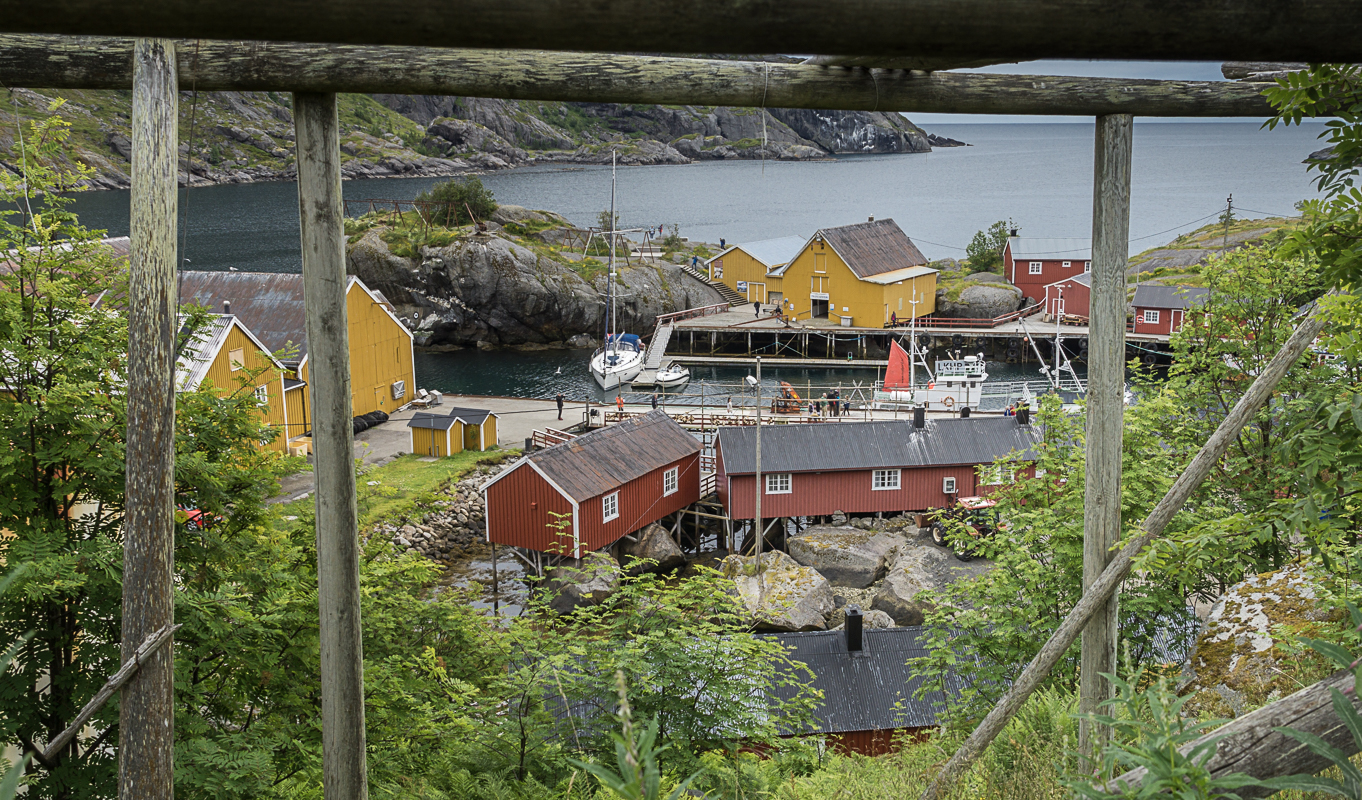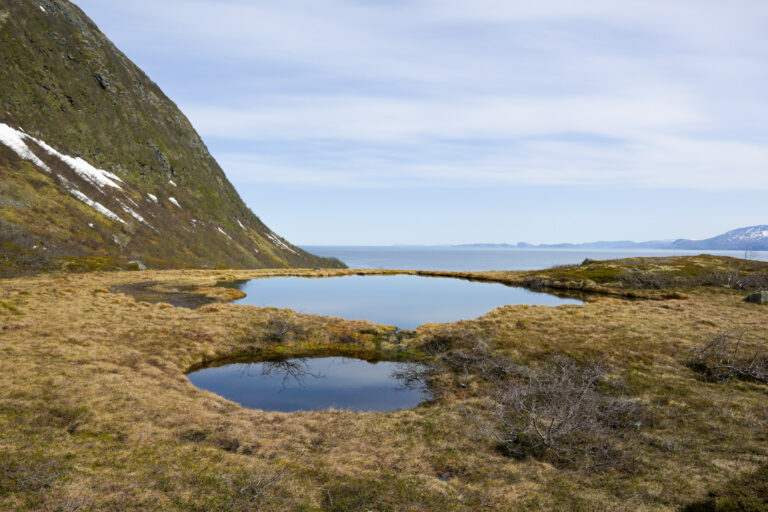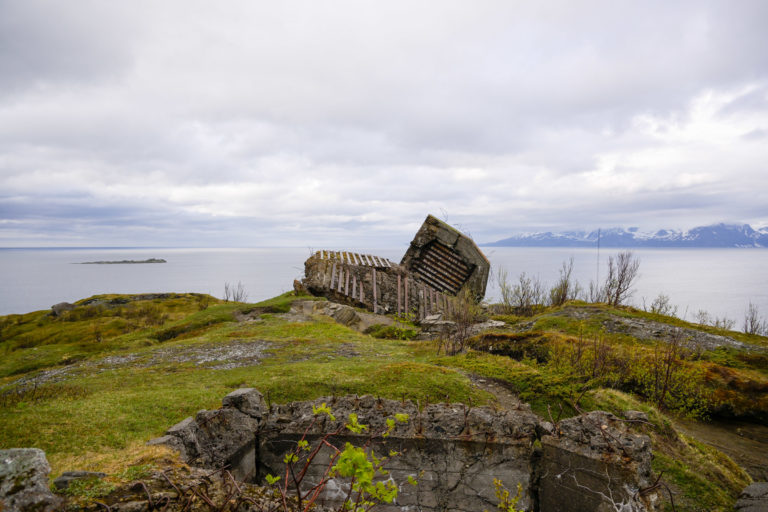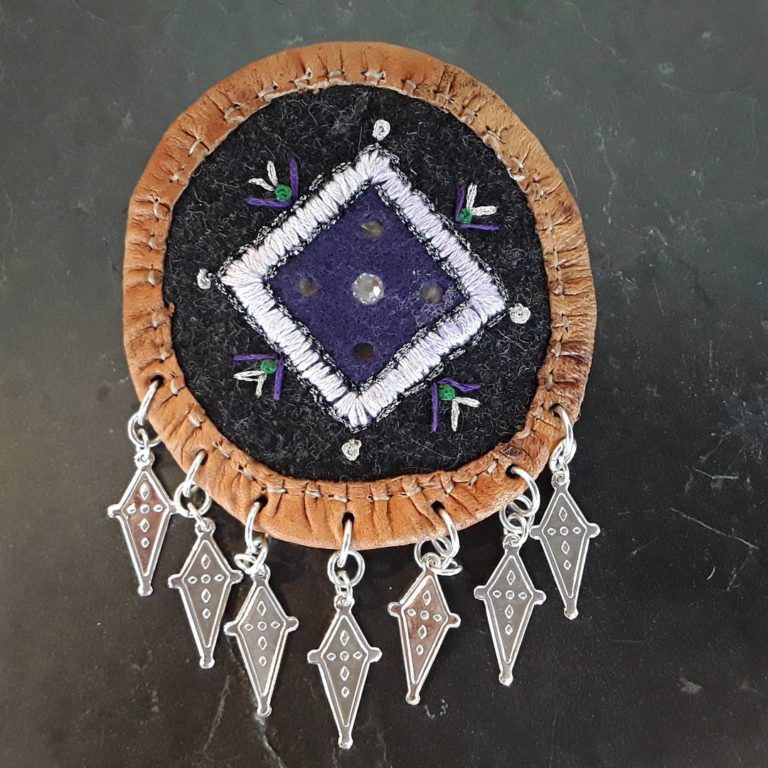In 1905, about 1500 Lofoten fishermen operated out of Nusfjord. Some of them slept crammed into rorbu cabins with other fishermen, while others didn’t have the money for such luxuries and would turn their boats upside down and shelter beneath them. The fishermen came from all along the coast; not many were from Lofoten itself. The Dahl family owned the complex of buildings from 1847, and it remained in their control until 2005. Nusfjord was at its busiest from the mid-19th century until the first few decades of the 20th century, but it continued to operate as a fishing village throughout the 20th century, thanks to its excellent harbour, which, just offshore, provided shelter from the winter storms on the Lofoten Sea.
50 rorbu fishermen’s cabins
The old rorbu fishermen’s cabins, of which there are about 50 clustered around the harbour, were painted red because red paint was the cheapest. Now they’ve been renovated to a standard the fishermen could never have dreamt of, but from the outside, reflected in the still waters, they are an idyllic reminder of times gone by.
Information about Nusfjord
Nusfjord is situated on the island of Flakstad in Lofoten. A short detour from the main road E10, and you will soon be situated in the beautiful fishing village.
Rent a “rorbu”, or a Fishermans cabin and stay there for some nights. The old cabins are renovated, and though they have a traditional look, you will find them both modern and comfortable.
It currently (per 26 June 2024) cost NOK 100 per person to enter Nusfjord.
A fishing community
In its day, Nusfjord was a profitable fishery operation. From 1910 to 1990, the cod-liver oil factory produced two different types of cod-liver oil: the high quality oil that was used as medicine, and a lower quality of oil used for paint and lubricants. The little smokehouse up the hill was used for smoking salmon. The red boathouse, built in 1877, acted as a storehouse for fishing equipment, including nets and a tanning vessel in which the nets were soaked. The north boathouse houses an old åttring boat from the late 19th century that was used for line fishing and also as a means of transporting people to and from church. The bakery, built in 1877, provided fresh bread for the fishermen in the rorbu cabins, and is still a bakery today. Up on the slope is an old power station dating back to 1905, the third oldest in Northern Norway, which provided enough power for the village owner’s house and some of the processing machinery.
Excellent service in a traditional setting
The old shop, which dates back to 1907, has been preserved just as it was then, with buckets hanging from the ceiling, a long elegant counter and a delightful old till, which instructs you to ‘ask for a receipt’! The shop is still open today, serving essentials to the few residents and numerous visitors. It also acts as the reception office for the complex. There’s even a cellar bar, the Oriana, which serves beer and some simple dishes. For those looking for a livelier atmosphere, there’s also the Karoline restaurant which offers an extensive menu of dishes of which the village owner would be proud.
A holiday resort
In 2005, the Lofoten Fishery on the leeward Lofoten shores suffered a tremendous blow, and fishing activities moved to the outer edge of the archipelago. Suddenly, Nusfjord wasn’t so ideally located for industry, and was sold and converted into a holiday resort. The complex was completely restored under the guidance of the Norwegian Directorate for Cultural Heritage and now serves as both a museum and a holiday resort. Day visitors pay a small fee to enter, which ensures that toilet and parking facilities are available.
Visiting Nusfjord
Above all, Nusfjord is a place for relaxation. Some visitors take advantage of the boats, fish cleaning and freezer facilities to go back to their roots and spend a week deep-sea fishing. Others come in their own boats and moor up in the visitor’s marina. Many use Nusfjord as a base for hiking in the mountains, a favourite trail being over to the neighbouring village of Nesland. In winter, Nusfjord is a lovely, secluded place from where visitors can watch the green rays of the Northern Lights trace the outline of the dark Lofoten mountains in silhouette. However, most people buy a day ticket and just stroll around, soaking up the idyllic, peaceful atmosphere. If you can, go on a guided tour, which ends in an amphitheatre on a knoll between the harbour and the sea. The amphitheatre was designed by students of architecture at the Norwegian University of Science and Technology (NTNU), and is uncompromisingly modern in its shape, but built from timber that blends elegantly with the wooden houses around.
